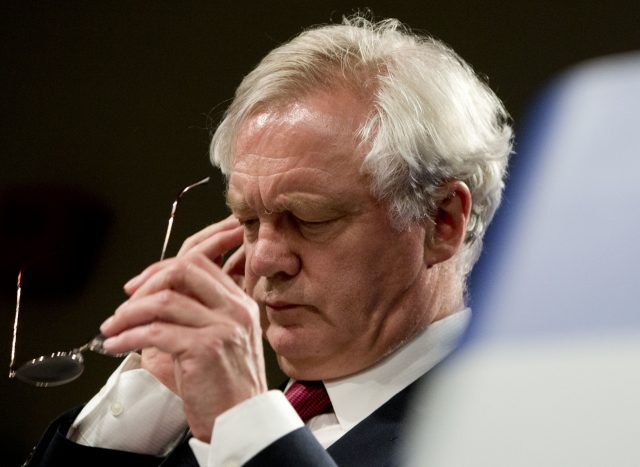Blow to David Davis as Brexit trade talks will not begin until October
The UK Government had wanted the talks to take place in parallel, but has accepted the timetable of the EU’s chief negotiator Michel Barnier.

Trade talks between the UK and European Union will not begin until October at the earliest as Brexit negotiations will follow the timetable set out by Brussels in a blow to David Davis.
The UK Government had wanted the talks to take place in parallel but has now accepted the timetable set out by the EU’s chief negotiator Michel Barnier.
European Commission official Mr Barnier warned the UK faced “substantial” consequences as a result of Brexit but insisted it was “not about punishment” or revenge.
After the first day of the crucial negotiations which have the potential to shape the UK’s economic and political future for a generation, it was agreed that working groups of officials would aim to make progress on the issues of citizens’ rights, the UK’s financial settlement – the so-called divorce bill – and other issues to do with separation.
The most senior officials on either side will lead work on efforts to resolve the problem of the border between Northern Ireland and the Republic of Ireland, a situation Mr Barnier acknowledged was “politically sensitive” at a time when the Tory government was seeking the support of the Democratic Unionist Party to prop up Mrs May’s minority government.
Only when “sufficient, concrete progress” on the first phase has been made will Mr Barnier recommend to the European Council that the negotiations can enter the next stage, taking in the future trading relationship, with that recommendation possibly coming at October’s summit of EU leaders.
After seven hours of talks in Brussels, Mr Davis – who had previously promised the “row of the summer” over the timetable for the negotiations – said he was optimistic about the talks.
Both sides acknowledged the clock was ticking, with the date for the UK’s departure from the EU fixed for March 2019.
Mr Davis denied suggestions the agreed timetable showed Britain’s “weakness” and insisted it is “completely consistent” with the Government’s aim of parallel trade and exit talks.
“It’s not when it starts it’s how it finishes that matters,” he said.
“The UK has been crystal clear in our approach to the negotiations, the withdrawal process cannot be concluded without the future relationship also being taken into account.
“They should be agreed alongside each other, this is completely consistent with the Council’s guidelines which state nothing is agreed until everything is agreed.”
Mr Davis also brushed off the idea Britain’s negotiating stance could change given political instability in the UK.
The Brexit Secretary said: “The position hasn’t changed, we have the Lancaster House speech, the two white papers, and the Article 50 letter, all backed up by a manifesto too.
“So it’s the same as it was before.”
Asked if he had given any ground to Britain, Mr Barnier said: “I am not in a frame of mind to make concessions, or ask for concessions.
“It’s not about punishment, it is not about revenge. Basically, we are implementing the decision taken by the United Kingdom to leave the European Union, and unravel 43 years of patiently-built relations.
“I will do all I can to put emotion to one side and stick to the facts, the figures, and the legal basis, and work with the United Kingdom to find an agreement in that frame of mind.”
He added: “The United Kingdom has decided to leave the European Union, it is not the other way around.

“The United Kingdom is going to leave the European Union, single market and the customs union, not the other way around.
“So, we each have to assume our responsibility and the consequences of our decisions. And the consequences are substantial.”
In a sign of the progress that has been made, Mr Davis said the Prime Minister would brief fellow EU leaders at a summit on Thursday on the UK’s approach to the rights of expatriate citizens, which will be set out in detail in a paper on Monday.
Mr Barnier and Mr Davis will meet every four weeks over the coming months, bringing their teams together for a matter of days each time.





